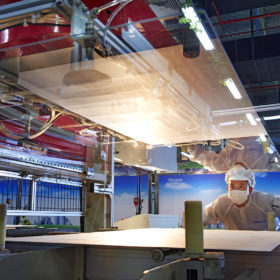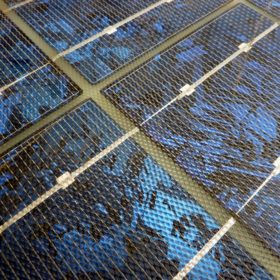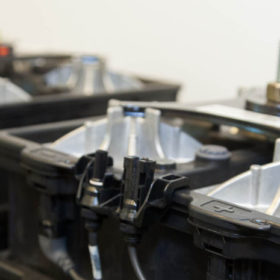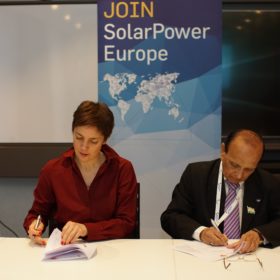Bharat Heavy Electricals to work with ARAI on e-mobility projects
Government-owned Bharat Heavy Electricals and the Automotive Research Association of India will combine their respective strengths in technology development and testing and certification to work on electric and trolley buses, EV chargers and battery and charger testing.
pv magazine speaks to Puneet Singh Jaggi, co-founder and director of Prescinto Technologies
Founded in 2016, Prescinto Technologies is an industrial internet of things solution provider to the solar sector. After two years, Prescinto has found a footing in 13 countries across 4 GW of solar plant capacity. Backed by Gensol Group’s engineering experience across 20 GWs of renewable projects, Prescinto is able to transform that knowledge into code and empowers plants ‘onboarded’ on its platform.
Imec, Jolywood announce 23.2% front-side conversion efficiency for n-PERT bifacial cell
The result was certified by the solar cells laboratory at the calibration and test center of Germany’s Institute for Solar Energy Research. Imec’s measurements showed cell bifaciality surpassed 80%.
Innovation boosts Lithium-ion battery recycling rate to over 80%
Finnish clean-energy company Fortum has achieved the Lithium-ion battery recycling rate of over 80%—as against the current 50%—with a low-CO2 hydrometallurgical recycling process.
The long read: Human vs. machine
Some manufacturers have started to bring self-learning algorithms and artificial intelligence into their monitoring systems and have indicated this in our market overview. In this way, they seek to reduce the personnel costs of O&M service providers. Although humans still have the upper hand in many processes, artificial intelligence is on the rise.
Trina Solar rolls out four new series of modules
The high efficiency series can be used in multiple application scenarios like utility-scale ground-mount and distributed PV projects. An increase in the output of modules from 370W to 415W will help reduce the balance-of-system cost by 4.5% to 8.5%, and reduce levelized cost of electricity (LCoE) by 2.5% to 4.6%.
Amtronics pays initial license fee to use QMC’s quantum dot technology for thin-film solar cells
Amtronics CC has paid U.S. firm Quantum Materials Corp an initial $500,000 as part of an agreement securing the right to manufacture quantum dots and thin-film quantum dot solar cells based on QMC technology for commercial supply in India. Construction has already started on a manufacturing facility in Assam, which will produce solar cells via a continuous, rapid-feed, flexographic-based printing process.
Tata Chemicals signs MoU for ISRO’s lithium-ion cell technology
Under this MoU, Indian Space Research Organisation (ISRO) would transfer the technology to Tata Chemicals so that it may manufacture lithium-ion cells of varying capacity, size, energy density and power density—catering to a wide spectrum of power storage requirements.
SolarPower Europe and NSEFI sign MoU on solar cooperation
Brussels-based SolarPower Europe and the National Solar Energy Federation of India (NSEFI) have signed a Memorandum of Understanding (MoU) for cooperation on operation & maintenance (O&M), installation quality, digitalisation and storage.
Cabinet approves five-year plan for EV battery manufacturing
Aiming to localize production across the electric vehicle value chain, the government will support battery manufacturing at a gigawatt-scale. The initial focus will be on large-scale module and pack assembly plants by the next fiscal year, followed by integrated cell manufacturing by 2021-22.















